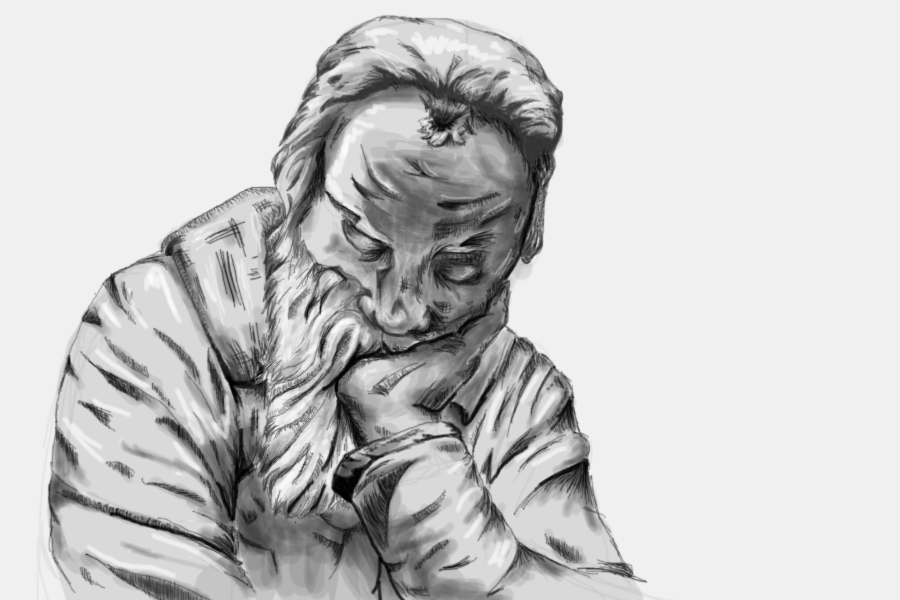
Have you ever had those days where, try as you may, you cannot bring yourself to fulfil a task? You tell yourself “I should do the washing up as I’ll appreciate walking into a tidy kitchen later on”.
You consider the thought for a moment, before a feeling of dread and discomfort overwhelms you and you find yourself sitting down to scroll through social media, or turning on your PC to play a game, or doing anything but the washing up.
Come the next day, you find yourself in a similar situation, with more dirty plates mounting and with that your desire to do something else ever increasing. So once again, you leave the dishes and find something easier and more fun to do. You feel guilty but come to the conclusion the process of doing the washing up would be far more unenjoyable so ultimately, you’ve made the right call.
Fast forward a few days, maybe even a week or two and every time you walk into the kitchen you are overwhelmed by the mess. You feel stressed, claustrophobic by the mess piling around you and unhappy with the task ahead. The thought pops into your head to do something else again, but this time you can’t; you have to take action. You tidy the whole kitchen and feel a sense of relief wash over you. You tell yourself “Next time I will do the washing up as it comes and not let it build up so much.” A week later, you find yourself in the same situation feeling stressed and overwhelmed and you are left wondering how you’re ever going to get on top of this undesirable habit.
The Theory
As humans, we have evolved to take the easiest and most gratifying course of action. Whether that be watching TV instead of doing the washing up, playing a game instead of going to the gym or scrolling through Facebook instead of writing that blog post you’ve wanted to write for a while.
It is speculated that this tendency to gravitate toward an easy and instantly gratifying task comes from our Nomadic ancestors who lived their lives in the moment. Their focus was on survival and any actions which didn’t give them an immediate advantage could jeopardise their survival as it was energy they didn’t need to expend. Nowadays, most of us don’t need to worry about walking out our front door and having a bear jump on us so we spend a lot of our time thinking about goals and what we want to achieve. However, our brain has evolved to keep us focused on survival, and therefore decisions that give us an immediate satisfaction or comfort. This can cause an internal conflict as we know what we want, but if the reward isn’t immediate our brain gravitates toward the easier option even if that isn’t in line with our ambitions.
In his book Atomic Habits, James Clear describes how often the more immediately gratifying the decision, the more negative it is for us achieving our long-term goals. Whereas the more resistance we have toward a decision, the more in line with our future goals it will likely be. For example, your long-time goal might be to lose weight.
However, when the opportunity arises to make a positive decision toward that goal, such as choose to cook a nutritionally rich meal instead of snacking on a chocolate bar, you often find yourself leaning toward the chocolate bar. The more you think about the positive decision, the more resistance you meet. Negative thoughts creep in about how much effort it’ll take to make dinner, how hungry you are, how you just want to sit down. However, when met with the decision about eating the chocolate bar, you might feel guilty, but the mental resistance you feel to picking up that bar is often far less than to cook yourself a dinner.
So, how do you train yourself to follow better habits?
After spending the morning working at my laptop, I noticed the time hit 12pm so put my laptop down and walked toward my kitchen. As I entered the kitchen, I noticed my shoulders tense up and a wave of dread overcome me. I looked around at the dishes pilled up, the sink full of pots and pans that I had ‘put into soak’ and empty cans and wrappers left carelessly on the kitchen top. I decided I’d had enough; whilst my lunch was heating up, I was going to do the washing up and tidy the kitchen.
Without realising, I had created an implementation intention.
An implementation intention is a plan you make with yourself which specifies the time and place you will complete a task, therefore increasing your likelihood of completing that task.
E.g. If/when situation occurs then I will perform this action
So, if I use the microwave to heat up my lunch, I will do some washing up.
Previously I had told myself “I need to tidy the kitchen” but, whilst true, it wasn’t specific enough. However, when I told myself “When I heat up my lunch, I will wash up some plates” I set a specific task and time for me to complete that task.
Okay, so I know what you are thinking; how does simply telling yourself when and where you will complete a task increase the chance of you doing it?
A study completed by Gollwitzer, P. M. (1999) on Implementation Intentions deducted there were three core reasons why an individual might not follow through on a goal-oriented behaviour, that is a behaviour that an individual has told themselves will help then move closer toward achieving their goal (e.g. keeping the kitchen tidy)
Forgetting to Act
Have you ever had the best intentions to act on an intention but simply forget? Taking your medication with the end goal of helping you get better, doing yoga after work with the end goal of getting stronger, tidying up your desk at the end of the day with the end goal of keeping a clean, uncluttered workspace?
One factor of why I never was able to keep the kitchen tidy was that I forgot to wash up my bowl after I’d finished with it. I forgot to take my mug through to the kitchen once I was done with it. I forgot about my goal to keep the kitchen in a better state. By setting an implementation intention, I created a trigger to prompt myself to complete my goal-oriented action. I knew every time I turned on the microwave, I should wash up a few plates and bowls. I eventually extended this out to when I turned on the kettle and was cooking on the hob too, so created more triggers to prompt me to keep the kitchen tidier.
Not seizing an opportunity to act
It’s true that sometimes you can simply forget to complete an action, but many of us will know the all too familiar struggle of not finding a good time to complete an action. For me, every time I walked into the kitchen, I knew I should wash up a few bowls, however I also knew I should get back to work so I failed to identify a good opportunity to act on my goal. However, when I identified that using the microwave or boiling my kettle was effectively dead time as I just went on my phone and browsed through social media, I identified a good opportunity to act on my goal-oriented action. I didn’t feel guilty about getting back to work as I wasn’t spending any extra time in the kitchen than usual; I was just utilising the time spent in there better.
Having second thoughts in the moment of acting
When you leave acting on an opportunity to chance, often if you meet some resistance to completing an action you will decide to take the easier option (remember, this is how our brains are wired – we tend to avoid short term cost even if it leads to long term benefit). However, by having already identified a clear opportunity to act and assigning an action to that time I removed all uncertainty about acting in that moment. I didn’t need to consider if I should complete the action as I had already assigned a plan of action to that moment of uncertainty.

The Philosophy
The great Stoic philosopher, Epictetus, once wrote:
To make anything a habit, do it; to not make it a habit, do not do it; to unmake a habit, do something else in place of it.
The reason why so many of us never progress toward our goals is because we are not consistent with the habits which help progress us closer toward our goals. Often, we try to do too much too soon which makes being consistent difficult and that default mindset of choosing the easier option kicks in as we are faced with too much resistance.
Our end goal may be to lose 10kg of weight by the end of the year, so we tell ourselves we’re going to go from doing no exercise to going to the gym 5 times a week.
Or our end goal is to learn a new language, so we tell ourselves instead of watching TV in our spare time, we’re going to spend two hours a day studying.
Or our end goal may be to eat healthier, so we tell ourselves instead of snacking between meals all day, we are going to cut out all snacking completely.
The problem isn’t with our end goal, but with the big habit changes we try to enforce in our daily lives. We expect to be able to go from doing no exercise to living a very active lifestyle of attending the gym 5 times a week; ultimately the mental (and physical!) resistance is too much and we quit. We try to go from spending no time studying to committing to two whole hours of study a day; our concentration wavers and the idea of studying becomes an unbearable task as two hours is too hard. We try to eat healthier and not snack but when hungry strikes we give in as it’s too difficult to go from snacking to no snacks at all; we feel like we must cut it out completely instead of, for example, replacing it with a healthier alternative or smaller snack.
When you set out your implementation intentions, keep them small at first until they become easy. Then you can increase difficulty. If I had told myself every time I turned on the microwave I had to do all the washing up it would have been too much, so instead I committed to washing up a few plates each time. Keeping your new habits easy will help with keeping them consistent; consistency will ultimately lead to a new habit forming and you a step closer to achieving your goals.
Keep it simple, be consistent and be patient. You will get there.
